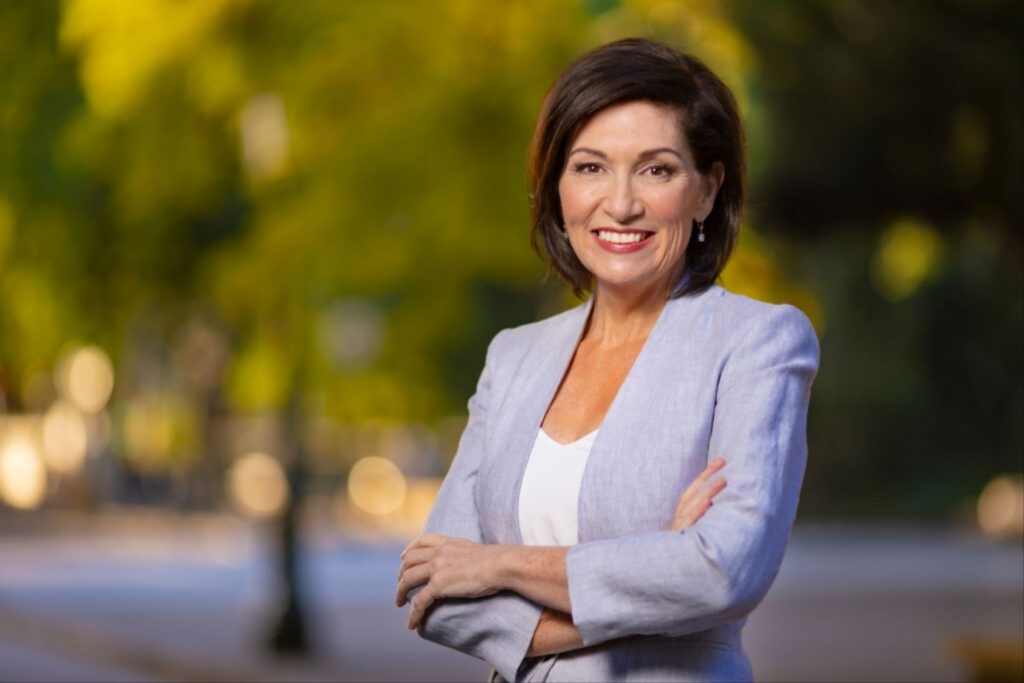The first Indigenous woman to sit in Queensland’s parliament has revealed some of the abuse she has received as the debate about the Voice reaches a boiling point.
Leeanne Enoch, who is Queensland’s Minister for Treaty, Aboriginal and Torres Strait Islander Partnerships, Communities and the Arts, has said the abuse she’s facing is racially charged and misogynistic.
“We’re seeing behaviours and attitudes where normally people will pull themselves into check but they seem to be feeling like they can go outside the bounds of what would be their normal behaviour,” she told the Courier Mail over the weekend.
“Last week I received an email from a constituent who I’ve known for quite some time.” Enoch did not reveal the contents of the letter from this constituent, but said it related to her deceased father and was aimed at getting her to reconsider her advocacy for the Yes vote.
“He’d never met my father and doesn’t know anything about my father, but he felt compelled to write to me about my dead father,” she said.
Enoch, who is a passionate advocate for ‘Yes’ in the referendum, said abuse like this has been ramping up in recent weeks and that her team has had to report abuse through official channels.
She said it was “upsetting” and that “hateful” messages are not necessary in a “normal, grown up country”.
Enoch is not the only high-profile Indigenous woman to find herself on the receiving end of abuse ahead of the referendum.
Last week, independent senator Lidia Thorpe was tagged in a video of a Neo-Nazi burning the Aboriginal flag while performing a Nazi salute.
Thorpe alleged that the Australian Federal Police and Prime Minister Anthony Albanese were not taking enough action to protect her from abuse like this from the far-right.
“I am not hiding this time. I’ve been in exile for four months,” she said at a press conference. “Four months, I wasn’t allowed to be in my own home. Because people want to kill me out there.”
Elsewhere, prominent academic and ‘Yes’ advocate Marica Langton found herself at the centre of a media storm last month when she alleged the media “misquoted” her at a referendum event at Edith Cowan University.
At the event, Langton said: “Every time the No case raises one of their arguments, if you start pulling it apart you get down to base racism. I’m sorry to say it but that’s where it lands, or just sheer stupidity.”
The Australian and The Bunbury Herald posted the quote and did their best to incite angry No voters about Langton’s supposed audacity.
Langton clarified that wasn’t branding No voters as “racist” or stupid, but directing criticism at the No campaign itself. But it didn’t stop the onslaught of attacks against Langton.
“The media reporting is a very deliberate tactic to make me look like a racist when I’m not,” Langton said. “I am not a racist, and I don’t believe that the majority of Australians are racist. I do believe that the No campaigners are using racist tactics.”
It’s not just high-profile Indigenous women who are facing an increase in abuse.
The national crisis support line for First Nations people, 13YARN, has reported a significant increase of 108 per cent in callers reporting they have experienced racism and abuse in the lead up to the referendum.
The national manager of 13YARN, Marjorie Anderson told the ABC that an increase in racism and falsehoods were making Indigenous people feel vulnerable and overwhelmed.
Moreover, the eSafety Commissioner confirmed earlier this year that the Voice debate has prompted a rise in cyber abuse, threats and harassment being directed at Indigenous people online.
A spokesperson from the eSafety Commissioner told Nine newspapers in May that similar increases in online abuse complaints occurred during the 2017 Marriage Equality Plebiscite postal vote, with a “noticeable increase” in attacks targeted at people from the LGBTQIA+ community.
This Saturday, October 14, is voting day for the referendum on the Indigenous Voice to Parliament. More than 2.2 million Australians have already voted at early voting booths over the weekend.
According to polling from the ABC, votes for Yes sits at an average of 41.2 per cent, compared to 58.8 per cent for No votes.


